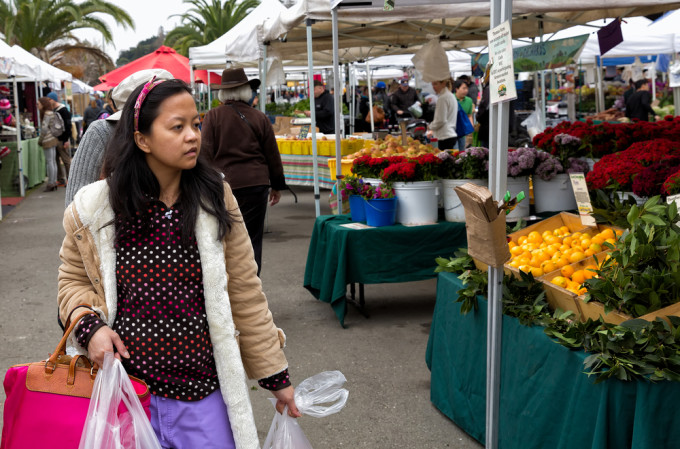
Share On Social!
California is full of food, unfortunately, many of the low-income areas are full of unhealthy options like fast food or foods highly processed and high in sodium or fats. The state has four million people with inadequate access to healthy and affordable fresh foods, but the future looks good.
This October marked a change for low-income Californian’s as a new bill was introduced to help allow low-income shoppers match their Supplemental Nutrition Assistance Program (SNAP) benefits dollar for dollar at local farmer’s markets.
The California Nutrition Incentives Act (AB1231), could create the nutrition matching incentive program within the state’s Office of Farm to Fork, where individual consumers, and school districts directly connect with California’s farmers, ranchers, and resources for fresh nutritious foods.
AB1231 can award grants to certified farmers’ markets that double the amount of nutrition benefits available to low-income Californian shoppers who purchase fresh fruits, nuts, and vegetables. Grants will be given first to communities in need that have a high prevalence of diabetes and obesity.
Latinos at 38.6% of the population are at higher risks of diabetes and obesity, where rates for diabetes are almost double those of non-whites reports the American Diabetes Association.
Current California legislation for SNAP does not limit households on SNAP from purchasing unhealthy foods with SNAP dollars at supermarkets. However, other states lawmakers in South Carolina and in Wisconsin, have proposed and petitioned the USDA, to only allow healthy foods be purchased with these benefits.
Healthier foods are needed for healthier Latino families and the popularity of healthier foods is growing state by state. Growing numbers of farmers markets throughout the nation are accepting SNAP dollars and some are even doubling dollars in areas of need.
More funding is needed next year to continue implementing healthier access to fresh foods in California through the AB1321 bill, but Wholesome Wave, a non-profit providing healthy food access in many states, hopes to bring this legislation to other states as an example.
Rebecca DeLaRosa, director of legislative affairs at the Latino Coalition for a Healthy California, and a co-sponsor of AB 1321, said in a recent article about the bill that it “symbolically recognizes that there is a model that works, one that emphasizes partnerships between local governments, farms, organizations, and foundations,” she said.
By The Numbers
142
Percent
Expected rise in Latino cancer cases in coming years



